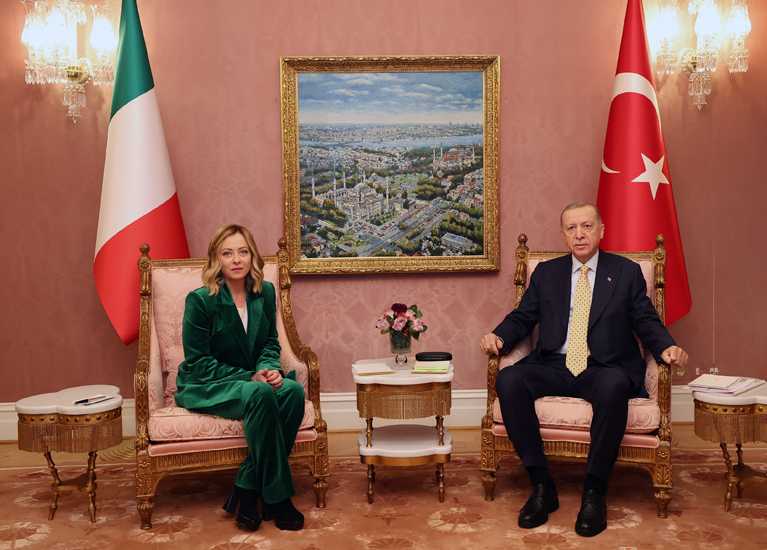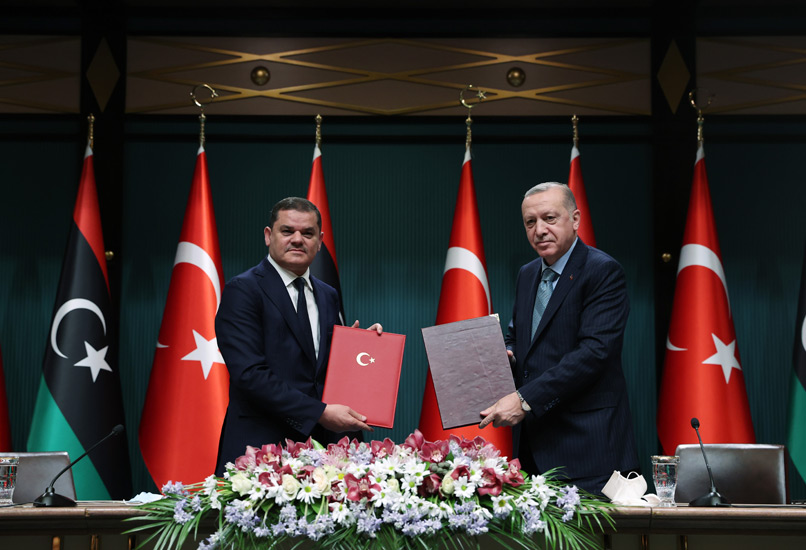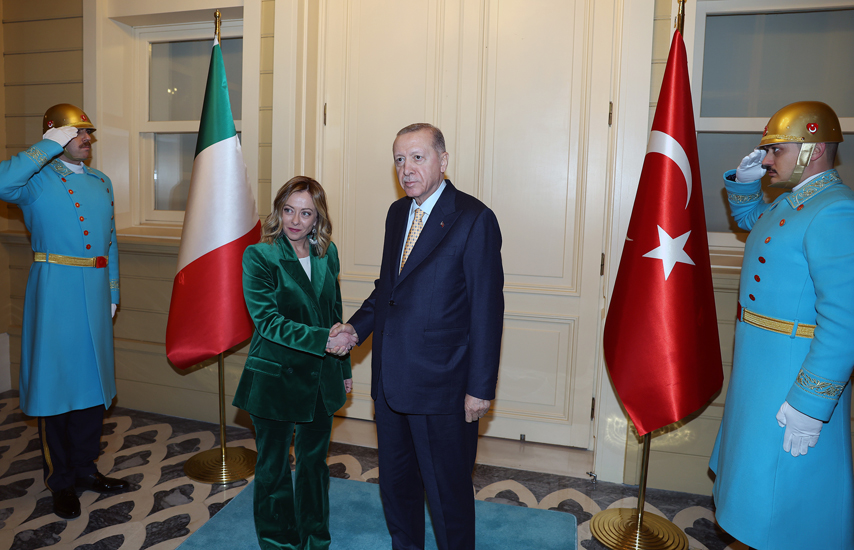Levent Kenneth/Stockholm
During a visit to Turkey on Saturday, Italian Prime Minister Giorgia Meloni reportedly asked Turkish President Recep Tayyip Erdogan for help in stemming the influx of migrants and refugees from Libya. Meanwhile, the Turkish side has proposed a joint agreement to be signed by Italy, Libya and Turkey. In his dealings with Europe, President Erdoğan is known for exploiting migration issues, particularly those originating from Syria and Afghanistan, and aims to establish himself as a leader in the Mediterranean region as well, stemming from the flow of migrants into Europe. There is.
Information about the meeting is limited in discussions in pro-government media, but reports from Meloni’s side suggest that Turkey will use its influence in Libya to address the problem of African migrants and smugglers entering Italy. It is emphasized that there is particular emphasis on Turkey’s approach to Italy is strengthened by the fact that, unlike Greece, Italy does not oppose Turkey’s operations in Libya.

Until now, stopping the flow of migrants from Libya has been a common challenge for Italy and Turkey, prompting their foreign ministries to launch a cooperative effort. Turkish sources claim that President Erdogan, in coordination with Libyan Prime Minister Abdulhamid Aldbeibeh, has proposed to the Italian Prime Minister the possibility of co-signing a trilateral agreement. The proposal is believed to include cooperation on migration and security issues in the Mediterranean region.
Turkey’s close relationship with the Libyan government has been accompanied by an increased military presence in the country. Last month, the Turkish parliament approved a presidential motion proposing a 24-month extension of the Turkish military’s mission in Libya.
President Erdoğan emphasized the importance of the Turkish naval presence in the region and said that the government’s objective is to ensure national security against potential threats such as mass migration and terrorism through the approved motion. .
With funding from Qatar, Turkey has been active since 2011 in arming, training and supporting factions aligned with the Erdogan regime in Libya.
Turkey has sent Syrian fighters to Libya as mercenaries, paying them a monthly salary and even promising Turkish citizenship to both the fighters and their families. The vetting and selection process for these fighters was carried out by the Turkish intelligence agency MIT, which has been working with Syrian jihadist groups since 2011 with the aim of overthrowing President Bashar al-Assad.
Turkey, which played a key role in the military success of the UN-backed Government of National Accord (GNA) against the rebels led by Khalifa Haftar, has supplied arms, ammunition and drones to fight Haftar, and has engaged Syrian mercenaries and organized jihadists. Furthermore, on January 2, 2020, the Turkish parliament authorized the government to send troops to Libya pursuant to the Security Cooperation Agreement.

Mr Haftar’s attempt to capture Tripoli was abruptly halted after Turkey intervened in the supply of the Bayraktar TB2 multi-purpose unmanned aircraft manufactured by the Turkish company Baikal Makina, headed by Erdogan’s son-in-law Selcuk Bayraktar. Ta.
Beyond ideological support, President Erdoğan openly acknowledged the strategic importance of Libya’s oil and gas resources to Turkey. At a joint press conference with former Libyan Prime Minister Fayez al-Sarraj on June 4, 2020 in Ankara, President Erdoğan announced cooperation including exploration and drilling operations to exploit natural resources within Libyan territory. announced plans to expand.
In November 2020, Turkey and the GNA signed a military cooperation agreement and a maritime demarcation agreement. The maritime agreement, which is not recognized by other Mediterranean countries, demarcates the continental shelves and exclusive economic zones (EEZs) of Turkey and Libya, but the security agreement allows Ankara to deploy troops into Libya. become.
Human rights activists fear that Erdogan is exploiting fears of irregular migration in European countries to shield his dictatorship from international criticism. Migration has been a key topic in EU parliaments since the Syrian crisis began, with the 2016 EU-Turkey migration deal allowing EU countries to return Syrian asylum seekers to squalid camps in Turkey. Admitted. In this way, the EU turned a blind eye to Erdoğan’s anti-democratic rule in exchange for tightening restrictions on refugees leaving Turkish territory for Europe.
